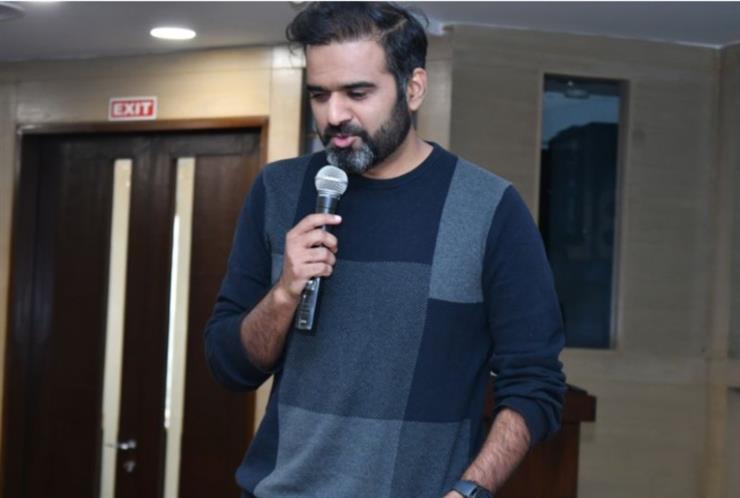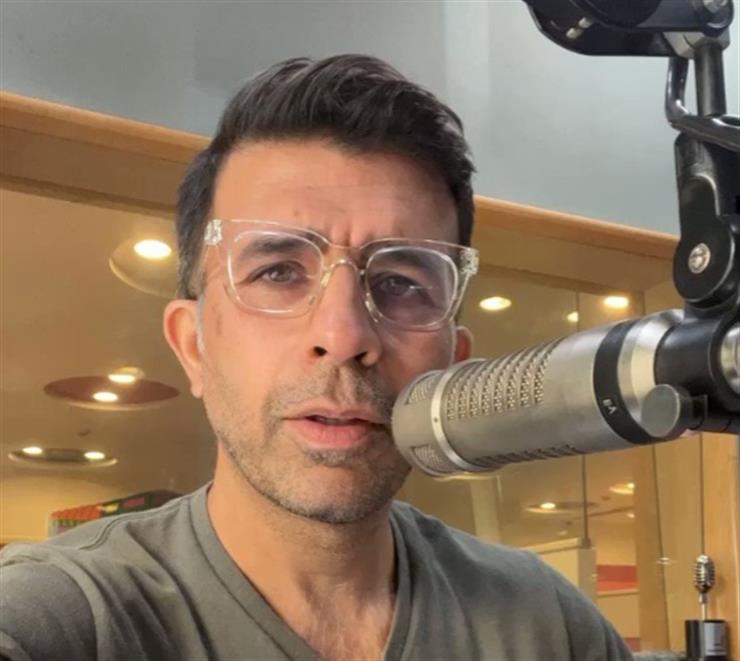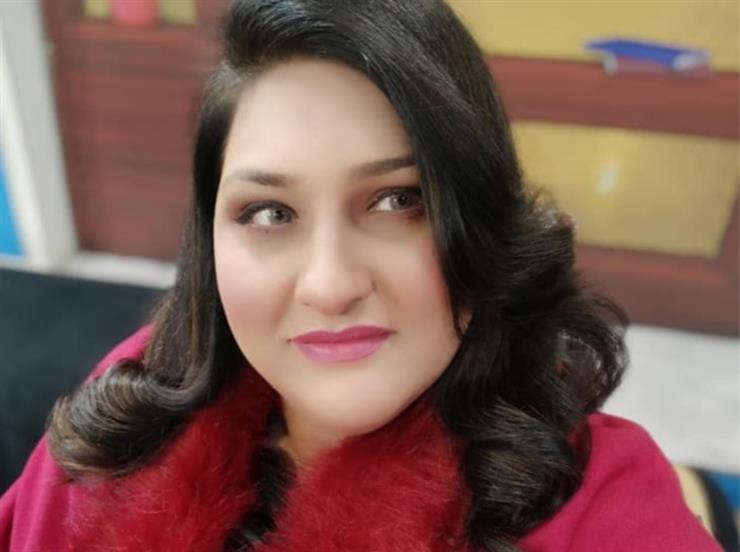By RAVINDER SINGH ROBIN FROM INDIA & SHIRAZ HASNAT FROM PAKISTAN
AMRITSAR/LAHORE: In India, the radio remains a cornerstone of communication, with a staggering 57.4 million individuals, equivalent to 4% of the population, regularly tuning in. Similarly, in Pakistan, approximately 5 million people, constituting around 2.35% of the population, engage with radio content on a daily basis. These statistics underscore the enduring popularity and influence of radio as a medium of connection and entertainment in both nations.
Ashar, a driver by profession, works for a private company in Lahore. He is a fond listener of india radio FM channels. Onehectic day at work while driving, Ashar wanted to listen to the legendary Indian singer Kishore Kumar's famous song "Manzilani apni Jaga hain, Rastay apni jaga".

RJ Adeel Azhar
Whether itis sweltering heat, heavy rain or foggy highways, the only companion of Ashar, in the closed car doors, is the radio and the sound coming from it. At that time, Indian FM channel songs were playing on the car radio. He texted the given number from his mobile and wished for a song to play. The car had only gone a kilometer on the roadsof Lahore when the radio jockey's voice was heard, "Our listener from Lahore Ashar has requested a song, we will play his favorite song to you". And Kishore Kumar's song "Manzilen Apni jaga hain, Rastay apni jaga" started playing. Asher's happiness knew no bound. Listening to this song today, Ashar's tiredness from the day's driving was disappearing.
In Pakistan alone, there are currently 175 commercial radio stations and 60 non-commercial radio stations operational, serving diverse communities and interests. India's radio scene, as documented by sources such as Wikipedia, paints a similarly dynamic picture. With 371 private FM stations spanning across 107 cities and an additional 372 community radio stations catering to specialized demographics, the country's radio landscape is as diverse as its population.
Heer from Chandigarh across the border, has been a radio jockey on Big FM 92.7. Along with Amritsar and Chandigarh, One of her avid listener celebrated her birthday in one of Pakistanis radio studio live with one of the Pakistani Rj. For Heer, these moments are memorable like a talisman. She regrets that she is unable to meet her Pakistani audience in the same way as she meets her audience in India.
One of her avid listener celebrated her birthday in one of Pakistanis radio studio live with one of the Pakistani Rj.

Sachin Sahni
In the bustling city of Amritsar, amidst the hum of dental drills and patient consultations, Dr. Salil Arora leads a double life—one as a dedicated dentist, and the other as an avid follower of world events and public discourse. It's a typical day in his clinic when the radio becomes his unexpected portal to the world beyond, thanks to the captivating program hosted by RJ Adeel Azhar on "Apna FM" in Lahore.
In a region where broadcasting news over radio waves is restricted, Azhar's innovative approach to discussing global affairs, coupled with readings from Pakistani newspapers, captivates Dr. Arora's attention. The unique format, which even incorporates live audience interaction via Twitter, becomes a daily ritual for Dr. Salil, offering him a brief respite from his busy schedule.
Yet, like any devoted listener, Dr. Arora encounters occasional signal disruptions, particularly when navigating the streets of Amritsar. However, during his visit to his in-laws in Ferozepur, strong signals from across the border make him listen Pakistani FM channels For Dr. Arora, the challenges of electricity, water, and roads know no national allegiance—they affect citizens regardless of borders.
The unexpected twist in Dr. Arora's story unfolds when RJ Adeel Azhar announces his visit to India. Seizing the opportunity, Dr. Arora reaches out to Azhar, expressing his desire to meet in person. Their eventual meeting, marked by the exchange of sweets and warm greetings, leaves a lasting impression on Dr. Arora, shattering preconceived notions and reinforcing his belief in the inherent friendliness of the people across the border.
Reflecting on his experience, Dr. Arora advocates for the power of positive radio broadcasts from both sides to foster greater people-to-people contact and understanding.
Amidst the clamor of school activities and educational pursuits, Prashant Sehgal of Delhi stands as a beacon of cross-cultural connection. As the principal of Adarsh Public Schools, he carries on a legacy deeply rooted in education, tracing back to his family's origins in Lahore.
The Sehgal family's ties to Lahore date back to 1934 when Prashant's grandfather founded a private school on Nisbat road. It is this enduring connection that sparks Prashant's curiosity to explore the cultural landscape of Pakistan, particularly through its vibrant radio waves.
Prashant's journey into the world of Pakistani FM channels begins as he discovers the opportunity to tune in through Facebook Live streams from Delhi. Since then, he has become a dedicated listener, immersing himself in the dynamic shows hosted by RJs Bilawal, Hina, and Asif Malik.
Despite the absence of Pakistani FM signals in Delhi, Prashant finds solace in the strong reception experienced during visits to relatives in Amritsar. It is during these moments that he indulges in the traditional melodies of Pakistani music.
Beyond the melodies, Prashant sees Pakistani radio as a platform for dialogue and exchange, where listeners from both sides of the border come together to share their perspectives. He believes that through this exchange, hearts can connect, differences can dissolve, and a shared understanding can pave the way for greater harmony.Prashant remains steadfast in his belief that the power of radio transcends borders, uniting hearts and minds in a shared celebration of music, language, and humanity.
Imtiaz Rasheed Qureshi is an Advocate of the Lahore High Court. As the Chairman of the Bhagat Singh Foundation, he dedicates himself to fostering understanding and collaboration across the border. Qureshi finds solace in tuning in to Indian FM stations on the radio, recognizing the power of this medium in fostering connections between people. Qureshi envisions a future where joint cross-border radio programs become a catalyst for dialogue and exchange. By providing a platform for discussions on culture, arts, and common heritage. According to Qureshi, the exchange of music and stories serves as a bridge, connecting audiences on both sides through a shared cultural tapestry.
For nearly two decades, Adeel Azhar has been serving as a radio jockey. He reflects on the changing dynamics of the industry, recognizing the challenges posed by the rise of alternative platforms such as YouTube channels and podcasts. Despite these shifts, Azhar remains committed to the power of radio as a medium for connection and dialogue.
Azhar recounts the joy he feels when receiving feedback from Indian listeners eager to engage with his programs, underscoring the sense of camaraderie that transcends geographical boundaries.Azhar recalls the outpouring of responses from both Pakistani and Indian listeners during moments of tragedy, such as the Nirbhaya Rape Case in Delhi. In these instances, the collective voice of the people resonates, emphasizing the universal values of respect and freedom for women.
Azhar's own experiences in India, marked by warm hospitality and enduring friendships, serve as a testament to the potential for genuine connection between individuals on opposite sides of the border. Even today, he continues to receive messages from Indian friends, engaging in discussions ranging from political affairs to cultural insights.
Looking ahead, Azhar remains optimistic about the prospects for improved relations between India and Pakistan. He believes that dismantling the metaphorical "Iron Curtain" separating the two nations is essential for fostering greater understanding and cooperation. Proposing joint radio shows as a means of cultural exchange and diplomatic engagement, Azhar envisions a future where radio serves as a catalyst for positive change and mutual appreciation.
Pakistani RJ Hina Adeeb Javedani has been associated with radio for almost two decades. She describes being a radio jockey as an art that can be performed only by learning and education. Hina credits the medium of radio for giving her a global reach. Along with Pakistan, she has many listeners in India as well. They not only listen to her but also give their feedback.

Hina
Recalling her visit to Delhi, she reminisces about the overwhelming love and hospitality extended to her by the people she encountered. During her time in India, Hina had the privilege of being invited to a university, where she not only engaged with students but also had the unique opportunity to host radio programs. As the first Pakistani radio broadcaster to program in Delhi, she found herself at the forefront of cultural exchange, breaking down barriers and building bridges through the airwaves.The significance of her visit was further underscored by an unexpected offer from the University of Delhi—a chance to pursue a PhD. Despite the potential for controversy, Hina remains steadfast in her commitment to steering clear of topics such as religion and politics in her programming. Understanding the sensitivity surrounding these issues, she believes in fostering dialogue that unites rather than divides.
Sachin Sahini, a seasoned radio personality based in Delhi, shares a sentiment akin to Hina Adeeb Javedani's perspective on radio broadcasting. With over twenty-six years of experience in entertaining audiences, Sahini echoes Javedani's assertion. He emphasizes that radio broadcasting is indeed an art, and radio jockeys are the torchbearers of information. In Sahini's eyes, radio remains a potent medium of expression, retaining its power amidst the digital age's rapid evolution.
Drawing inspiration from renowned Pakistani artists like Shafqat Amanat Ali and the collaborative platform of Coke Studio, Sachin highlights the power of music to transcend borders and unite diverse audiences. For Sachin, the heart of radio lies in its ability to forge connections with everyday people—from students to housewives—who reach out with messages and voice notes, forming a vibrant community bound by a shared love for music and meaningful content.
As a radio jockey, Sachin views radio jockeys, “The bearer of global brotherhood”, advocating for peaceful exchanges and mutual understanding between nations. While politics may dominate the headlines, Sachin believes in the transformative potential of radio to uplift spirits and spread joy, focusing on creating content that resonates with his audience and brings a sense of novelty and delight to their lives.
Beyond its technical prowess, radio broadcasting is an art form in its purest sense. From the soothing cadence of a familiar voice to the carefully curated playlists that evoke nostalgia and emotion, every aspect of radio production is crafted with precision and care. While podcasting on platforms like YouTube has undoubtedly carved out its own niche, radio broadcasting continues to captivate audiences with its unique blend of immediacy, intimacy, and authenticity.